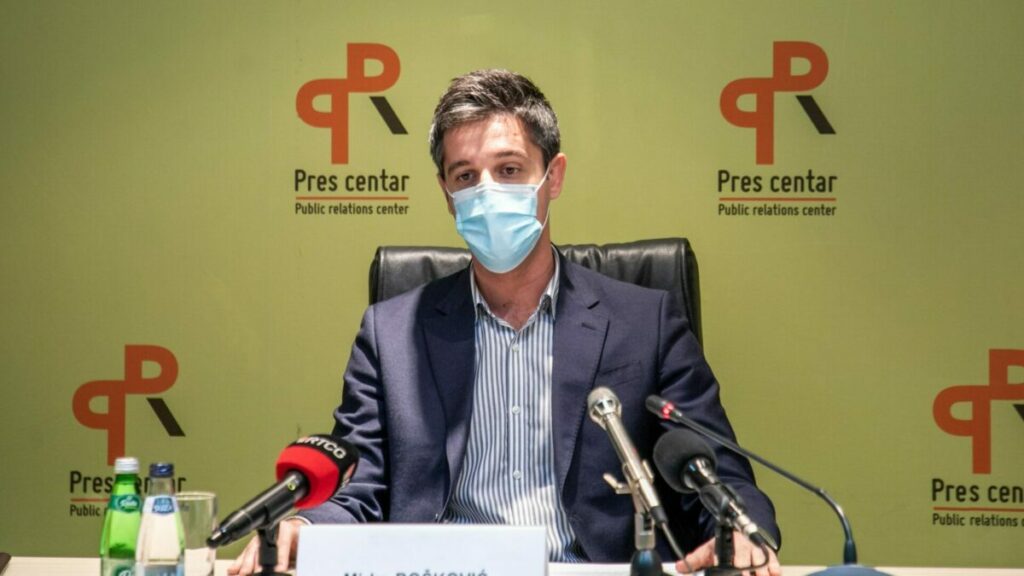PODGORICA, 22.02.2022 – The protection of journalistic sources, even during the new changes in media legislation, which began at the end of last year, provokes various controversies among the representatives of the media and legal community.
While some advocate the complete lifting of restrictions on that freedom, which were introduced by the Media Law in 2020, others believe that the ban should remain, but with a precise determination of the procedure for disclosing sources.
The Media Law, which entered into force in July 2020, for the first time provides for restrictions in the event of threats to territorial integrity, public health and security. However, the procedure for such restrictions is, according to many, vague, with different interpretations, that could be misused.
On this occasion, experts from the Council of Europe sent an opinion to the Government of Montenegro in April last year, emphasizing the importance of specifying the provision in order to prescribe that the prosecutor’s request for disclosure of sources, and in prescribed situations, must be approved by the court.
Lawyer Mirko Boskovic reminds that the issue of protection of journalistic sources is regulated by Article 30 of the Media Law, which guarantees journalists the right not to disclose a journalistic source.
“Namely, a journalist who gets acquainted with information that could indicate the identity of a source of information during the collection, editorial processing, or publication of media content, is not obliged to disclose that source. Protection of confidentiality of journalistic sources is recognized in the Code of Journalists of Montenegro, which among the most important principles of work and activity of journalists, proclaims the principle of protection of sources”, he said.

He says that this right is not absolute: “The cited Article 30 of the Media Law prescribes appropriate restrictions, which means that, under precisely and strictly defined conditions, journalists may be required to disclose sources of information. Namely, a journalist, under the obligation to the public prosecutor, shall disclose the source of the information when necessary to protect the interests of national security, territorial integrity, and health protection. ”
He reminds that such a decision was treated as disputable by the public, especially having in mind the provisions of the previously valid Media Law, which treated the right to protection of a journalistic source as an absolute right, ie did not prescribe the mentioned restrictions.
“It should be emphasized, however, that the right to protection of a journalistic source is an integral part of the right to freedom of expression under Art. 10 of the European Convention for the Protection of Human Rights and Fundamental Freedoms, which is subject to certain restrictions. Therefore, prescribing restrictions on the right to protection of journalistic sources in domestic legislation is not disputable in principle, but the sensitivity and importance of a specific issue should be taken into account, so legal solutions should be as precise and unambiguous as possible, “he said.
Although our legislator in paragraphs 3 and 4 of the mentioned Article 30 of the Law on Media, as he said, prescribes additional guarantees in the form of judicial control of the justification of restricting the right to protection of information sources, in this case, it should be noted that the norms of this article leave a dilemma. The prosecutor, in accordance with the provisions of paragraph 2, could order the disclosure of sources of information during the investigation, regardless of the decision or authorization of the court, given its specific role and manner of procedural engagement in the investigation phase.
“In an attempt to answer this question, and with the fact that linguistic interpretation proves insufficient, ie leaves dilemmas, which is certainly not good in terms of a specific issue, other methods of their interpretation must be applied in finding the appropriate meaning of these norms, targeted (teleological) and systematic interpretation, “he said.
Boskovic states that, in any case, when making a decision on hearing journalists on the circumstances of a protected source of information, the court will pay special attention to whether the information is directly related to the specific case, whether the information can be obtained from other sources and whether the legitimate interest in disclosing information on the source of information referred to in paragraph 2 is based on law, prevails over the protection of the source of information.
“Also, in order to strengthen the protection of journalistic sources, Article 30 paragraph 4 of the Law on Media prescribes the possibility of the court to exclude the public during the presentation of information on the source of information and warn persons attending the main trial where the public is excluded. They are obliged to keep as a secret everything they learned during the trial, in which case they will also point out that revealing the secret is a criminal offense “, he said.
The lawyer notes that the restrictions on the right to protection of journalistic sources prescribed in our legislation are fully in line with the Recommendation of the Committee of Ministers of the Council of Europe R (2000) 7 of March 8, 2000, on the right of journalists not to disclose their sources information.
“Out of the possible seven restrictions envisaged by the recommendation, our legislator opted for three of them (protection of national security interests, territorial integrity and health protection), and such a solution is very similar to those existing in most Council of Europe and European Union member states. Of course, only strict adherence to the prescribed rules and criteria in practice will enable the restrictions in each case to be considered justified, so the responsible approach of courts and state prosecutor’s offices to this issue in practice is of special importance, “he said.
The article was created within the service “Know your rights”, which was introduced by the Media Union in April last year with the aim of shedding light on various topics of importance for membership and media workers.








